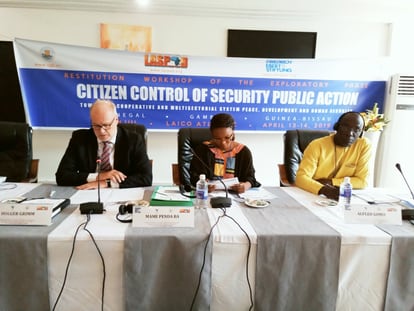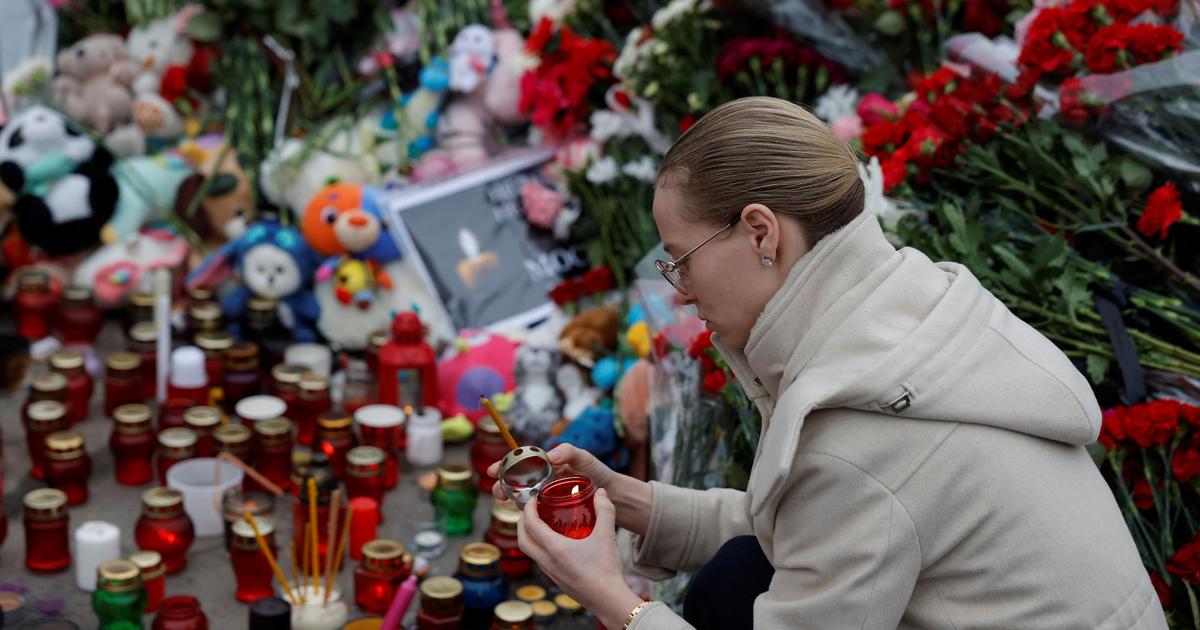Note to readers: EL PAÍS offers the Future Planet section for its daily and global informative contribution on the 2030 Agenda. If you want to support our journalism,
subscribe here.
The binomial security and Africa sets off all the alarms of thought: terrorism of a religious nature, inter-ethnic wars or trafficking of goods and people. The agendas on the security of the West African region are conditioned by geopolitics and state economic interests and, many times, marked by the large international media agencies. An initiative of the LASPAD laboratory (Laboratory for the analysis of societies and power Africa-Diasporas) of the Gaston Berger University of Saint Louis (Senegal), started in 2018 by an academic team led by the sociologist Rachid Id Yassine in three countries in the area (Senegal, Gambia and Guinea Bissau), seeks to discern what are the real concerns of the population about their safety. The results are, in this order, access to employment and unemployment,access to and distribution of drinking water, and pollution and waste management.
More information
The Sahel: beyond climate conflicts
This is how a city drowns
BioNTech sets its sights on Africa and announces a malaria vaccine with the technology used for covid-19
The African challenge of making up for lost classes
In a first workshop in Dakar, where academics, security forces and bodies, civil society actors such as the women of Casamance who work as peace mediators and lawyers, among others, participated, seven dimensions were defined to analyze this complex concept: context, life experiences, exposure to different types of violence, evaluation of the State's public action in security matters, but also that of international organizations and civil society, and citizen participation in security action.
Supported by a quarantine of experts, the LASPAD research team carried out in March 2019, a study of the perception of security governance in three neighborhoods of eight locations in the
Senegambia
space
: Dakar, Saint Louis, Tambacounda and Zinguinchor in Senegal; Banjul and Bwiam in the Gambia, and Bissau and Farim in Guinea Bissau. A total of 1,480 people were interviewed.
What are the main problems in your neighborhood? Have you been the victim of a robbery in the last 12 months? How are you exposed to violence linked to religious extremism? What kind of confidence do the police in your country give you? These are some of the 63 questions addressed directly to the population by a survey team that translated them into French, English and Portuguese, but above all, into local languages (Wolof, Pulaar, Creole) and who ensured a balanced profile between sexes, ages, educational level or socio-professional categories.
The data collected was exploited and uploaded into a Citizen Security Barometer (BSC), a mapped and online database that allows a reading at different territorial scales, on the different security issues analyzed, separately or unified.
60.5% of the people interviewed affirm that they “feel safe in their neighborhood” or that “they live well in their neighborhood” (62.8%)
The tool produces a citizen security index (ICS) that accounts for the perceptions of the security situation by the citizens themselves.
On a scale from -10 to +10, the average index for the study area was 6.35, which indicates that it has a “good security situation”, according to its inhabitants.
With 5.38 Guinea Bissau has the most negative perception of the three countries, the average being 6.16 in Senegal and 7.25 in Gambia.
The barometer, officially published in October 2020, is to be periodically updated with the same questions from the initial survey, but also including others that have emerged and that are equally of citizen interest, such as the migration issue or the impact of the pandemic of the covid-19.
In my neighborhood you live well
60.5% of those interviewed affirm that they “feel safe in their neighborhood” or that “they live well in their neighborhood” (62.8%) and more than 80% declare not having suffered “any type of aggression” in the last anus.
That does not mean that there are no problems.
Of the difficulties identified in the surveys, the main one indicated is access to employment and unemployment with 15.74%;
the second is access and distribution of drinking water (11%) and, thirdly, pollution and waste management, identified by 10% of those questioned.
Among the dangers mentioned are not those presented in the media and public debates such as terrorism, religious, sexual or inter-ethnic violence.
These issues only represent 2% of the responses.
These are the most common, such as delinquency or organized crime and political violence, which are highlighted by those surveyed as the main threat in their respective neighborhoods.
People feel more coerced by drug trafficking (43.6%) than by the risk of a terrorist attack (3.8%).
The feeling of insecurity is particularly strong in Guinea Bissau, with 50% of the people surveyed expressing it.
The feeling of insecurity is particularly strong in Guinea Bissau, with 50% of the study participants expressing it, compared to just 14% in the Gambia.
It is in this country where the only neighborhood whose safety index is "excellent" is located: Kankuntu, in the city of Bwiam.
Although the study report does not disaggregate the results by sex of the person interviewed, according to geographer Khalifa Diop, one of those responsible for the study, they discovered that “street harassment of women or gender-based violence are a concern of the population because they constitute a factor of daily insecurity for them ”.
The survey does take into account the feeling of social cohesion in the neighborhood.
It is in Gambia where aid is constant among the citizens, as indicated in 60% of the forms, while in Guinea Bissau the solidarity of the neighborhood is weaker.
Another interesting piece of information is that the vast majority of those interviewed consider that the involvement of the public in security matters is important (96%) and that this should not be exclusively a responsibility of the forces of order, whether public or private.
The right to human security
Workshop in Dakar where the results of the report on the perception of security in West Africa were analyzed Laura Feal
According to Rachid Id Yassine, the objective of the barometer is "to have a tool for measuring human security, perennial and structural" that can offer "a realistic vision of the different threats that weigh on people's daily lives."
"The interest of this database is that from the decision-making bodies, political strategies can be oriented according to the real expectations and needs of the population, and not according to a media agenda that highlights a certain number of phenomena that are usually covered in newspapers and televisions ”, affirms the director of the study. "Territorial collectivities in charge of security, municipal police, firefighters, SAMU, state and interstate structures such as ECOWAS, or international organizations such as the UN, other civil society actors such as NGOs or associations are then the main potential recipients" of the information produced by the LASPAD, he adds.
The academic highlights that the study has been carried out by a public university, "which responds to criteria of impartiality and scientific research, not like other possible surveys carried out by private companies that may have biases for wanting to
lobby
on some strategic or economic issue" . And he believes that that is why citizens "should appropriate this tool that can help their voice reach decision-making bodies."
Id Yassine explains that the
Senegambia
pilot study
has tried to solve some questions "such as the use of different languages, the management of border areas and problems from local to interstate", and that therefore the laboratory will work on expanding the tool in a second phase in Mali, Burkina Faso and Niger, and predictably a third in Libya and Tunisia.
Gambia elections 2021
As explained by political analyst Beatriz Mesa, member of LASPAD, "the barometer also serves to measure the levels of perception of security and insecurity of the population in specific contexts, and thus we are preparing to use it during the Gambian elections."
“Its use is planned in three phases: one prior to election day that will serve to study the perception of the public about the candidates and electoral programs, but also about the transition process in which the country has been plunged for five years. years after the frustrated coup (of Yahya Jammeh) and the promises of the current president (Adama Barrow) that are not being fulfilled, such as limiting the duration of the mandates, which requires a constitutional change, ”says Mesa. "Polls will also be conducted during election day and the days after, which are crucial moments."
According to the study group, the three stages can potentially be marked by acts of violence due to political, economic or social causes, so the objective of the barometer would be to be able to “anticipate the escalation of violence based on indicators or warning signs allowing to mobilize to the citizens to monitor and limit these threats ”that could also influence the electoral result.
FUTURE PLANET can follow on
,
and
, and subscribe
here
to our 'newsletter'
.








